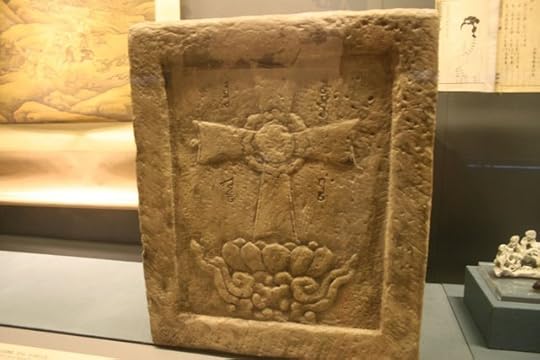What do you think?
Rate this book


415 pages, Hardcover
First published October 21, 2007



"Marco would not have been surprised to encounter noodles in Mongolia; long before his journey, this type of food had spread from turkey along the Silk Road in both directions. Contrary to myth, Marco Polo did not introduce noodles to Italy; his anonymous predecessors had."Wikipedia says that it was introduced by Arabs, specifically in Libya, during their conquest of Sicily in the late 7th century, according to the newsletter of the National Macaroni Manufacturers Association, thus predating Marco Polo's travels to China by about six centuries."
